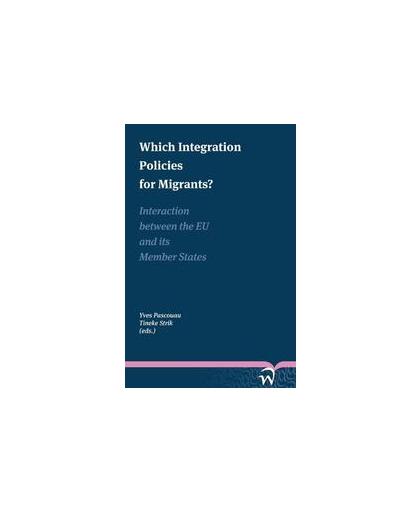

Which integration policies for migrants?. interaction between the EU and its member states, Paperback
Available at:
Integration policies are at the forefront of EU and national debates. At EU level, integration issues have gained extensive importance in the framework of the development of an EU migration policy. At national level, discourses about failed integration policies have put integration policies under high pressure in political and legislative debates. Thereby, an interaction between the EU level and the national level can be observed. A general trend emerges where immigration and integration policies become increasingly interconnected. More precisely, migrants' access to a (stronger) legal status is becoming dependent on their level of integration.
This book contains the updated outcomes of a conference where these interactions have been scrutinised. The first part demonstrates that several instruments are adopted at EU level that frame the emergence of a European Integration Policy which has an effect on national policies. The second part outlines a trend in Member States to require third country nationals to fulfil integration obligations. If such a trend is fuelled by growing EU attention, EU rules may also limit their effect. Part three analyses three national models as examples of integration policies with mandatory elements. The final part explores the effects of such integration requirements on the position of migrants: their integration and their residence rights.
Which integration policies for migrants?
Integration policies are at the forefront of EU and national debates. At EU level, integration issues have gained extensive importance in the framework of the development of an EU migration policy. At national level, discourses about failed integration policies have put integration policies under high pressure in political and legislative debates. Thereby, an interaction between the EU level and the national level can be observed. A general trend emerges where immigration and integration policies become increasingly interconnected. More precisely, migrants' access to a (stronger) legal status is becoming dependent on their level of integration. This book contains the updated outcomes of a conference where these interactions have been scrutinised. The first part demonstrates that several instruments are adopted at EU level that frame the emergence of a European Integration Policy which has an effect on national policies. The second part outlines a trend in Member States to require third country nationals to fulfil integration obligations. If such a trend is fuelled by growing EU attention, EU rules may also limit their effect. Part three analyses three national models as examples of integration policies with mandatory elements. The final part explores the effects of such integration requirements on the position of migrants: their integration and their residence rights.
Beschrijving gevonden op BookSpot.nl
Which integration policies for migrants?
Integration policies are at the forefront of EU and national debates. At EU level, integration issues have gained extensive importance in the framework of the development of an EU migration policy. At national level, discourses about failed integration policies have put integration policies under high pressure in political and legislative debates. Thereby, an interaction between the EU level and the national level can be observed. A general trend emerges where immigration and integration policies become increasingly interconnected. More precisely, migrants' access to a (stronger) legal status is becoming dependent on their level of integration. <br /><br />This book contains the updated outcomes of a conference where these interactions have been scrutinised. The first part demonstrates that several instruments are adopted at EU level that frame the emergence of a European Integration Policy which has an effect on national policies. The second part outlines a trend in Member States to require third country nationals to fulfil integration obligations. If such a trend is fuelled by growing EU attention, EU rules may also limit their effect. Part three analyses three national models as examples of integration policies with mandatory elements. The final part explores the effects of such integration requirements on the position of migrants: their integration and their residence rights. <br />













